2 min read
Gospel-Centered from the Start
“Let us hold unswervingly to the hope we profess, for He Who promised is faithful…Jesus Christ is the same yesterday, today, and forever.” (Hebrews...
“Humans connect to other humans at so basic a level that when we disconnect, our souls shatter into a thousand little pieces.” – Peter Leithart
When we think about homelessness, we tend to think first about the bitter cold of the Inland Northwest, the need for food, shelter and safety. And these are critical. But sometimes the glaring physical needs blind us to the more insidious threats of loneliness and isolation.
Loneliness is not unique to people experiencing homelessness. We have all experienced loneliness at one time or another. But for people experiencing homelessness, the loss of connection has become the defining characteristic of their lives. They find themselves without friends, family or safety net. Utterly alone.
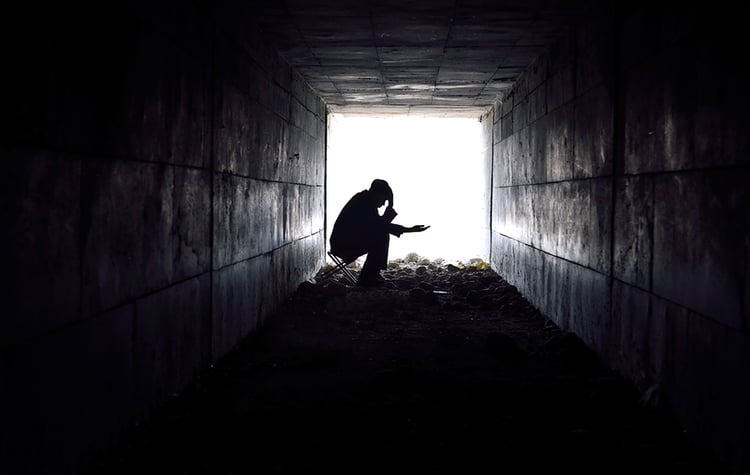
"There is only one common denominator across all homelessness, and that is this: Homelessness is a loss of community." - Joe Ader, Executive Director of Family Promise of Spokane
People lose community in a variety of ways. Often, their families of origin were abusive. They may have cut ties or been pushed out. They may have then carried that dysfunction into new relationships. Those who have been abused often abuse others or build walls so high and so thick that people can’t reach them. If you cut yourself off from others, if you look scary enough or angry enough or crazy enough, no one will be able to hurt you.
But they also can’t help you.
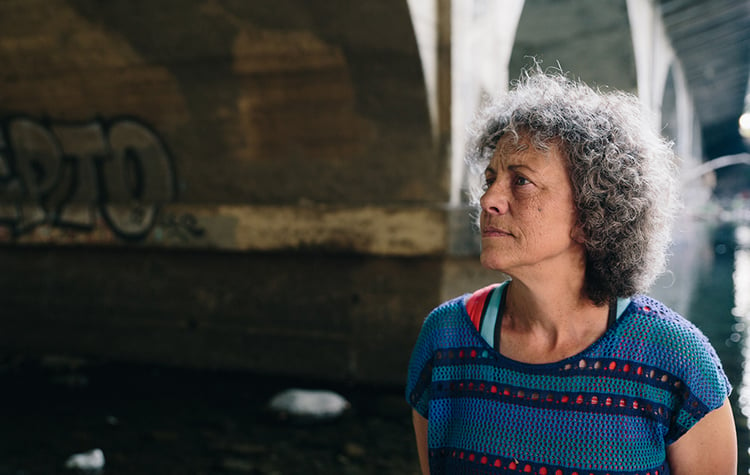
“I was so intensely, painfully miserable and lonely. I mean, it was so painful, it hurt. But I drank [to numb the pain]. And it started not working, and that scared me. I started smoking weed with drinking so I didn’t have to feel... I just had a mean mask. Just, ‘Back off, I don’t need you. I don’t care.’ Which way deep down wasn’t really the truth.” - Debra
Mother Teresa worked with people literally dying of hunger and still described the greatest suffering as “being lonely, feeling unloved, having no one. I have come more and more to realize that it is being unwanted that is the worst disease that any human being can ever experience. There is a terrible hunger for love. We all experience that in our lives – the pain, the loneliness.”
The medical community has even linked loneliness to physical and psychiatric illnesses:
“If loneliness didn’t exist, we could reasonably assume that psychiatric illnesses would not occur either.” – Dutch psychiatrist J.H. van den Berg
“Biologists have shown that feelings of loneliness trigger the release of stress hormones that in turn are associated with higher blood pressure, decreased resistance to infection and increased risk of cardiovascular disease and cancer.” Scientific American
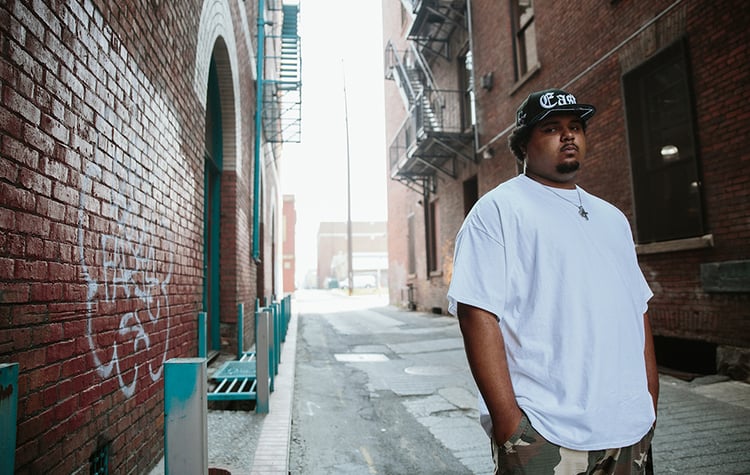
Hidden in all this darkness is a seed of hope.
Scott Sauls is a pastor and author who writes a great deal about loneliness: “According to the Bible, we experience loneliness not because there is something wrong with us, but because there is something right with us. We experience loneliness because we know, deep down, that we were made for more connection, intimacy, and love than we seem to experience. We sense that this is not how it’s supposed to be. This is true experientially. It is also true theologically.”
In the second chapter of the Bible, God says, “It is not good for man to be alone.” This isn’t a verse primarily about marriage or romantic relationships. This is a verse about the nature of God and the nature of man. God has always been in relationship with himself – Father, Son and Holy Spirit. He created man “in his image” to be in relationship, as well. Think about God’s assessment of all that he created in the first six days: “And God saw that it was good.” But when he sees Adam alone – even before the fall – he says the opposite. It was not good.
Pastor Sauls again: “[God] has made us for community, not for isolation; for interdependence, not independence; for relational warmth and receptivity, not for relational coldness and distance.”
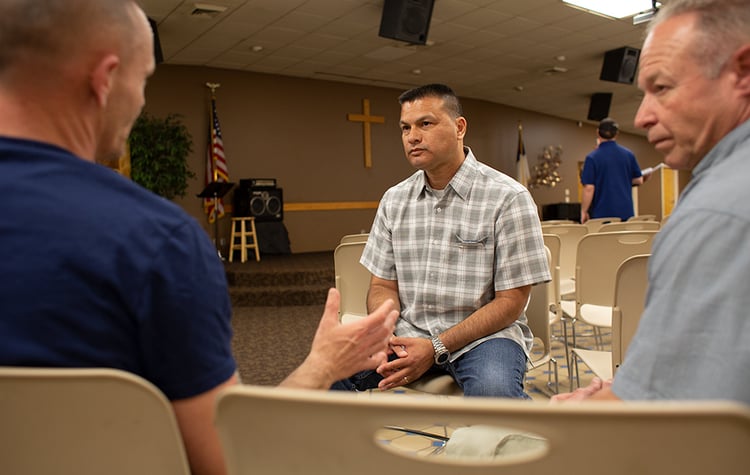
Loneliness is like a fever or a warning siren – shouting at us that something is amiss. It is so painful and so loud that everything in us wants to drown it out, make it go away, but the only way to make it go away is to move into relationship – relationship with God, relationship with other people – and often, that is the last thing we want to do because we are hurt and afraid.
“I’ve always been hurt. Every time I opened my heart up, I got it crushed. No more.” - Debra
“People who are homeless need people who are not.” – Pastor John Repsold
Maslow’s Hierarchy of Needs is a commonly accepted theory in psychology that suggests a person’s most basic needs must be satisfied before he can attend to more advanced needs. At the bottom of Maslow’s pyramid are physiological needs – food/shelter – and safety. The next tier up is love and belonging.
“The life of God is a life of continuous love, fellowship, communion, a continuous round of conversation and intimate communication. That’s the God who made us, and he made us to resemble him. We live fully human lives only when we live in communion with God and with other human beings.” – Peter Leithart, author of Traces of the Trinity: Signs of God in Creation and Human Experience.
Loneliness signals that a person’s love and belonging needs are not being met.
The problem is, if you've been hurt by people, how do you ever trust them again?
"To love at all is to be vulnerable. Love anything and your heart will be wrung and possibly broken." - C.S. Lewis
The truth is: You have to take risks.
You have to risk being hurt again. You have to risk entering into community. Risk sharing a piece of yourself.
Trusting is a risk. Especially for people who have been repeatedly hurt in relationships.
We recommend baby steps.
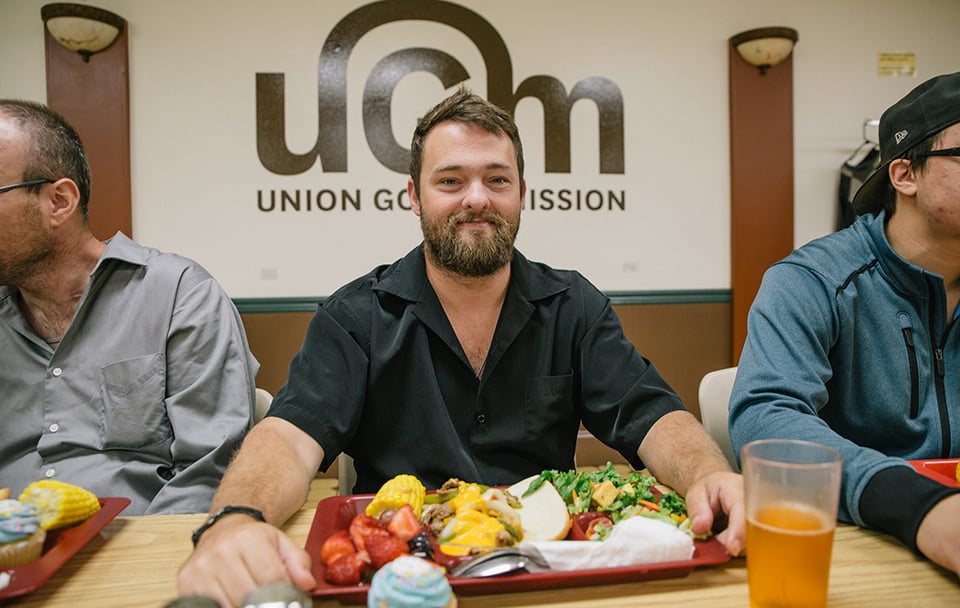
That's a big reason we talk so much about UGM being a safe and healing environment. We want people who have been wounded to have the opportunity to heal. We want them to take risks and succeed. We want them to trust and find people worthy of that trust. We want them to meet Jesus because we know he is ultimately trustworthy, the best friend they will ever have.
Frankly, we also talk a lot about meals. For so many of our guests, food is their first connection to community. They enter our doors, receive a tray of food and sit down at a table with other people. Baby steps. We want everything about that experience to say: You are safe here. You have value. You are not alone. We want to know you.
To address homelessness, we must address loneliness through human connection. One way you can be a part of that is by serving a meal. Find out more here.
Providing meals at UGM is one way to re-connect people to community.

2 min read
“Let us hold unswervingly to the hope we profess, for He Who promised is faithful…Jesus Christ is the same yesterday, today, and forever.” (Hebrews...

9 min read
To celebrate 75 years of serving the Inland Northwest, we are spending the year remembering our history and the faithfulness that built us and...

2 min read
In 2026, Union Gospel Mission Inland Northwest is approaching our 75th Anniversary! This is a milestone that invites gratitude and reflection, and...
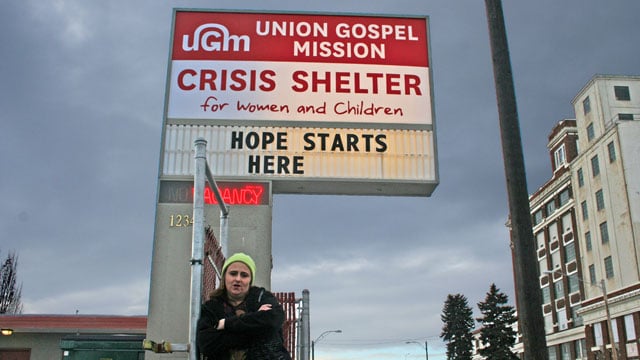
Safe Shelter Kimmi Halbrook liked to play, “Let’s Make a Deal” with God: Get me out of this scrape, and I promise to get my act together. But at 39 –...
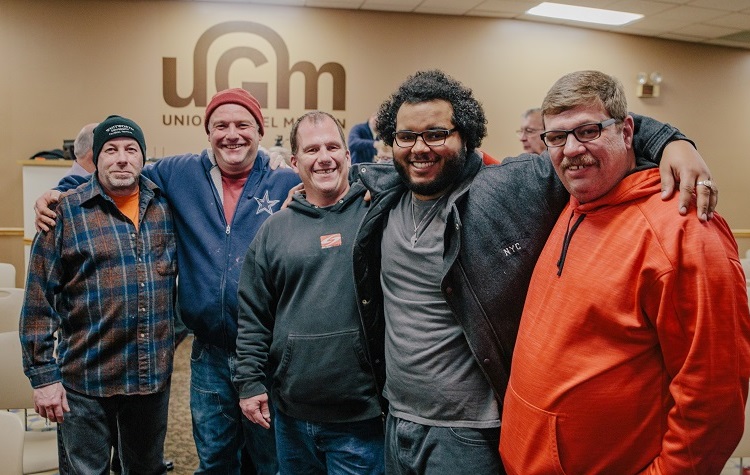
(This article was posted in 2014 and updated in 2019.) UGM: the Whole Person Approach In its quest to break – not perpetuate – the cycle of ...
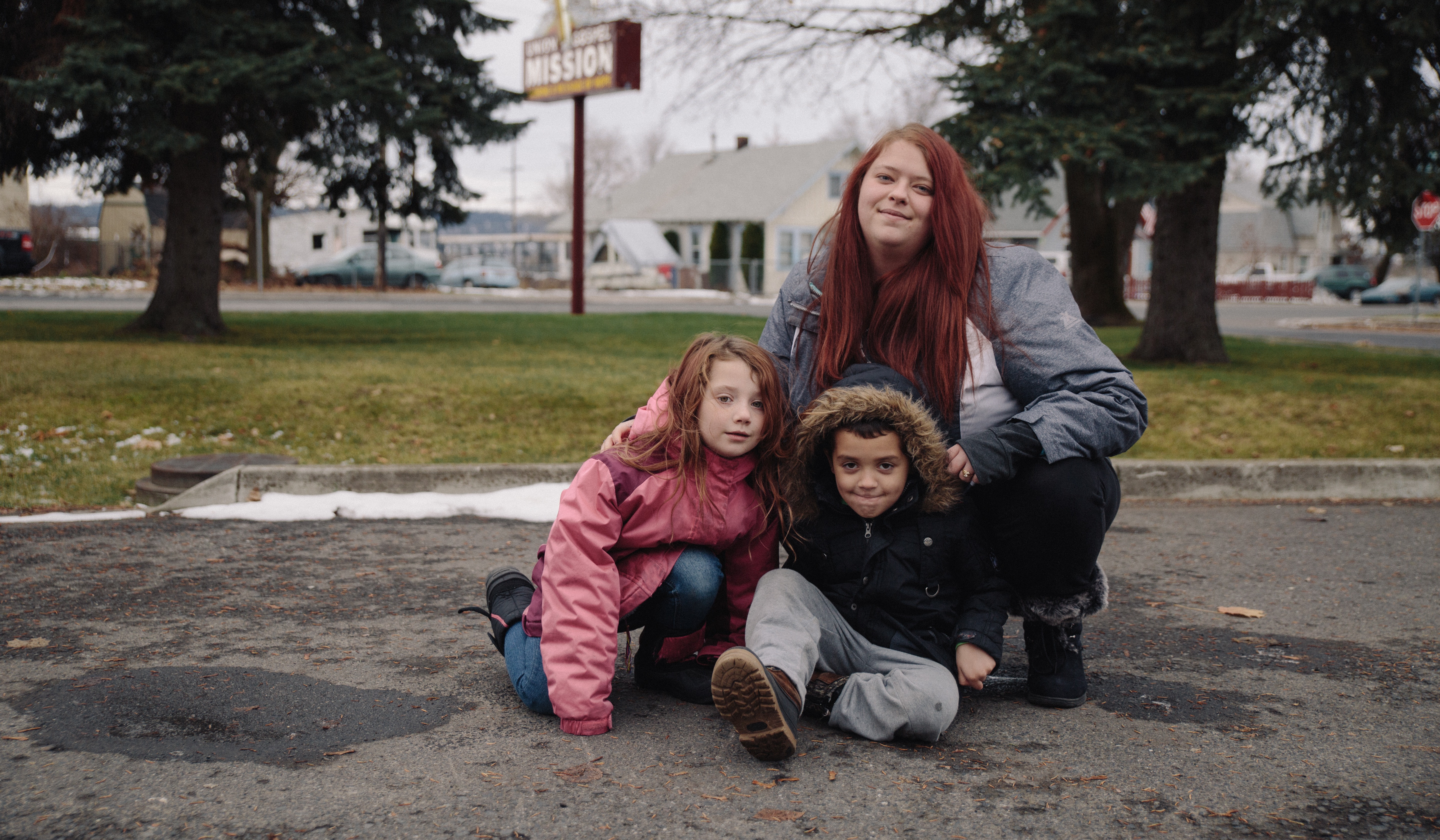
The UGM Crisis Shelter for Women and Children is approaching its 13th anniversary in January. While the surroundings have changed dramatically in...